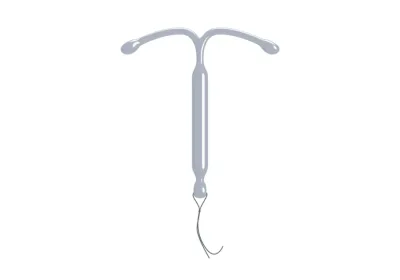Contraception for Military Women: Options for Managing Periods & Preventing Pregnancy

Military women face unique challenges when it comes to reproductive health. Whether on deployment, or in training, maintaining control over one’s cycle and preventing unintended pregnancy is essential for readiness and overall well-being. That’s why understanding the options for contraception for military women is more important than ever.
Why Contraception Matters in the Military
Servicewomen often operate in environments where access to medical care and hygiene products can be limited. Periods can be inconvenient, painful, and even risky in certain conditions. Additionally, the physical and psychological stressors of service life can complicate menstrual cycles and contraception routines.
Effective contraception for military women isn’t just about preventing pregnancy — it’s also about maintaining performance, comfort, and peace of mind.
Popular Contraceptive for Military Women
Below, we discuss several ways to use hormonal contraceptive methods to safely and effectively control menstrual bleeding. You may be familiar with some of these methods in slightly different ways.
1. Birth Control Pills
The birth control pill contains two hormones (estrogen and progesterone) and prevents pregnancy by preventing the release of an egg from the ovaries (ovulation). It also thickens the cervical mucus, making it difficult for sperm to reach the uterus.
Since this pill must be taken every day at the same time, it might prove challenging for some women during deployment.
However, if women are able to take a pill each day, predictable vaginal bleeding occurs for most women. Most women report lighter periods when using the pill. The last week of each pill pack is a placebo (pills with no hormones). When a woman takes the placebo pills, this has the same effect on the body as when the progesterone level drops naturally. Therefore, taking the week of placebo pills provokes a menstrual period.
If a woman skips the week of “blank” pills, and starts the new pack after 21 days of the “active” pills, the progesterone level stays stable and she won’t have a period. Some women like this method because it allows them to have menstrual periods once in a while, at their convenience.
In short, if a woman stops the active pills for five days, she will get her period. It’s very important to remember, however, to restart the pill within seven days of stopping. Otherwise, you cannot rely on it for contraception for the next week.
2. Mirena Intrauterine Devices (IUDs)
This device is inserted into a woman’s uterus by a trained healthcare provider. It releases a hormone which primarily prevents pregnancy by causing a mucus plug to form in the cervix. This mucus plug prevents sperm from entering the uterus and thus fertilization of an egg does not occur.
The Mirena IUD thins the lining of the uterus and, over time, lightens a woman’s period significantly. In fact, after nine months of use, 20 percent of women reported that they had no vaginal bleeding at all in the next three months of use. The average number of days of bleeding was only two days of light spotting.
By two years of use, 40 percent of women had no bleeding. Because it does not stop women from ovulating (making an egg every month) it may not improve PMS symptoms, although cramps are significantly reduced. It is effective for pregnancy prevention for up to five years.
3. Contraceptive Implant (Nexplanon)
This is thin flexible plastic rod that is inserted by a trained healthcare provider, beneath the skin in the upper arm. It releases a hormone which prevents ovulation. And also causes a thicker cervical mucus to form, which does not allow sperm to reach the uterus (prevents fertilization). Vaginal bleeding can be unpredictable while using the implant.
Most women will experience lighter bleeding, or no bleeding at all, but at unpredictable intervals. Some women will go for many months with no bleeding, but then may have bleeding or spotting for many days in a row. And some women will experience an increase in number of bleeding days.
4. NuvaRing
The NuvaRing is a flexible plastic ring placed within the vagina that releases two hormones (estrogen and progesterone). These hormones prevent ovulation and thicken cervical mucus, just like the pill, preventing fertilization.
It must be changed every three to four weeks to reliably prevent pregnancy. And is generally removed for one week, at which time a period will occur. However, the ring free week may be skipped and a new ring placed immediately on removal of the old ring to prevent a period from occurring.
The major drawback of the NuvaRing for deployed women is the need to store the ring at room temperature. Or in a refrigerator if more than a four-month supply. Many deployments take women to areas with high temperatures and inconsistent access to refrigeration. In this case, the NuvaRing would not be an ideal birth control choice.
Managing Periods on Deployment
Many servicewomen choose hormonal contraceptives not only for pregnancy prevention but also to suppress menstruation during deployment. This can reduce the need for menstrual supplies and lower the risk of infections due to limited hygiene access.
Long-acting reversible contraceptives like IUDs and implants are particularly popular choices. This is because they’re effective and require little ongoing attention. Therefore, they are more ideal for the unpredictability of military life.
Conclusion
Contraception for military women isn’t just a health issue, but rather a readiness issue. Servicewomen have a lot to deal with during deployment. As such, the ability to safely reduce or even stop menstrual bleeding can be very welcoming to many.
Ideally, the birth control method of choice should be started at least three to six months before deployment. Doing so allows for assessment of the suppression of periods before deployments, and make adjustments as needed.
You may also enjoy reading: Understanding Postpartum Depression Symptoms




